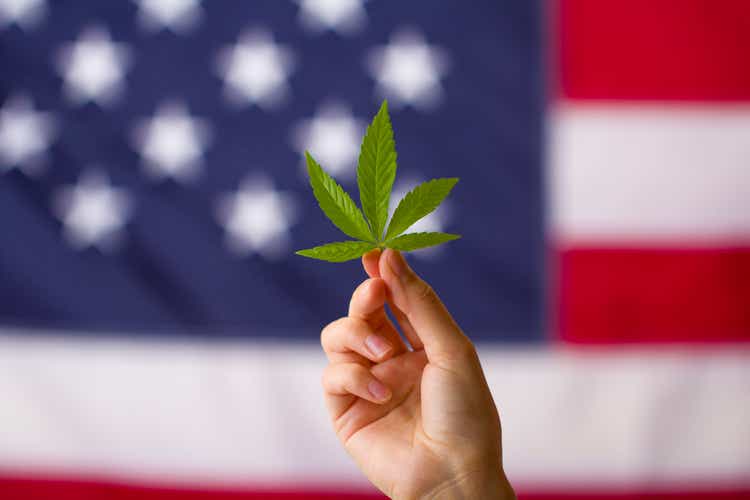
strelov
While a move by the White House to propose that marijuana be reclassified as a less dangerous drug would certainly be a monumental breakthrough for the cannabis industry, the road to implementation remains “lengthy and murky,” according to BTIG analysts.
In a recent note, BTIG acknowledged that reports the Biden administration was getting ready to propose such an action marked a “watershed moment” for the cannabis industry. However, even if the White House were determined to move ahead with great speed, the process could get bogged down for years by legal challenges.
There’s little question that the industry has much to gain by having cannabis reclassified from being a Schedule I substance, a class generally reserved for high abuse drugs such as heroin, to a less risky Schedule III, a category that includes prescription drugs such as Tylenol with codeine.
For starters, reclassification would allow for cannabis companies to take standard tax deductions that are currently prohibited for businesses that derive their income from Schedule I drugs. It would also create more research opportunities for the industry, which BTIG views as a “long-term tailwind,” and allow banks to offer a wider range of services to cannabis businesses. BTIG added that “embracing incremental reform” would also “lower the political cost of future action.”
But BTIG also warned that the process will likely face delays due to legal challenges and lack of clarity on implementation.
The investment firm is particularly concerned that an outside party could petition to have an administrative law judge review the proposal, which could delay reclassification by as much as a year. BTIG also sees legal challenges being filed after reclassification, which could drag out the process another two years.
“Finally, there is no clarity on the scale or scope of the implementing regulations that will be required, given existing state programs,” BTIG said, adding that a second Trump administration could also slow down the process.
BTIG also said it was “bearish” on the cannabis banking bill, noting that it still hasn’t seen any real movement on the legislation and that Senate Minority Leader Mitch McConnell remains opposed to it.
Multi-state operators: Cresco Labs (OTCQX:CRLBF), Trulieve (OTCQX:TCNNF), Green Thumb Industries (OTCQX:GTBIF), Curaleaf Holdings (OTCPK:CURLF), MedMen Enterprises, Acreage Holdings (OTCQX:ACRHF), Ayr Wellness (OTCQX:AYRWF); Ascend (OTCQX:AAWH), Verano Holdings (OTCQX:VRNOF), Jushi Holdings (OTCQX:JUSHF).
Cannabis services: Leafly (LFLY), GrowGeneration (GRWG).
Canadian cannabis companies: Tilray (NASDAQ:TLRY), Canopy Growth (NASDAQ:CGC), Aurora Cannabis (ACB), Cronos (CRON), Organigram (OGI) Village Farms (VFF), Curaleaf (OTCPK:CURLF), High Tide (HITI), TerrAscend (OTCQX:TSNDF), SNDL (SNDL).
Cannabis ETFs: AdvisorShares Pure Cannabis ETF (YOLO), Amplify Seymour Cannabis ETF (CNBS), ETFMG Alternative Harvest ETF (MJ), AdvisorShares Pure US Cannabis ETF (MSOS), AXS Cannabis ETF (THCX).
